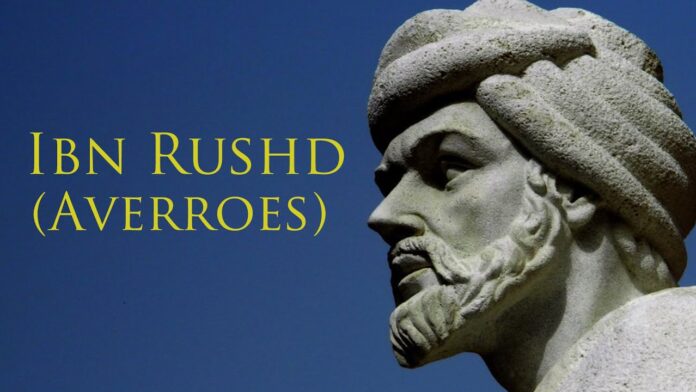The Amazigh people, also known as Berbers, have played a significant role in shaping the cultural and historical landscape of North Africa. From pre-Islamic times to the present day, Amazigh individuals have made notable contributions to various fields, including religion, politics, literature, and scholarship within the Islamic world. In this article, we explore ten of the most influential Amazigh figures in the history of Islam.
- Tariq ibn Ziyad (670-720 CE): Tariq ibn Ziyad is perhaps one of the most renowned Amazigh figures in Islamic history. He led the Muslim conquest of Hispania in 711 CE, crossing the Strait of Gibraltar with an army composed largely of Berber soldiers. His victory laid the foundation for Muslim rule in the Iberian Peninsula, shaping the region’s history for centuries to come.
- Ibn Tumart (1080-1130 CE): Ibn Tumart was the founder of the Almohad movement, a Berber dynasty that ruled over North Africa and parts of Spain during the 12th and 13th centuries. His teachings emphasized the oneness of God and social justice, garnering widespread support among the Amazigh population and reshaping the political and religious landscape of the Maghreb.
- Ibn Battuta (1304-1368/69 CE): Born in Tangier, Ibn Battuta was a renowned Muslim scholar and traveler who journeyed across the Islamic world during the 14th century. His extensive travels, documented in his famous work “Rihla” (The Travels), provide valuable insights into the social, cultural, and religious aspects of the medieval Islamic world, including the Amazigh societies he encountered along his routes.
- Ibn Khaldun (1332-1406 CE): Widely regarded as one of the greatest scholars in the history of sociology, economics, and historiography, Ibn Khaldun was born in Tunis to an Amazigh family. His seminal work, “The Muqaddimah,” laid the groundwork for the philosophy of history and remains a cornerstone of modern sociological thought.
- Ahmad al-Mansur (1549-1603 CE): Ahmad al-Mansur was a sultan of the Saadi dynasty in Morocco and a patron of the arts, sciences, and Islamic scholarship. Under his rule, Morocco experienced a period of cultural flourishing, with advancements in architecture, literature, and diplomacy. His reign is often referred to as the “Golden Age” of Moroccan history.
- Fatima al-Fihri (800-880 CE): Fatima al-Fihri was a wealthy Amazigh woman who founded the University of Al Quaraouiyine in Fez, Morocco, in 859 CE. Recognized by UNESCO as the oldest existing, continually operating higher educational institution in the world, Al Quaraouiyine played a pivotal role in the transmission of knowledge and the advancement of learning in the Islamic world.
- Ibn al-Zubayr (624-692 CE): Ibn al-Zubayr was an influential Islamic scholar and jurist of Amazigh descent who played a significant role in the early development of Islamic jurisprudence. His legal opinions, known as fatwas, continue to be studied and referenced by scholars today.
- Yusuf ibn Tashfin (c. 1061-1106 CE): Yusuf ibn Tashfin was the founder of the Almoravid dynasty, which ruled over North Africa and Spain during the 11th and 12th centuries. His military campaigns and political leadership expanded the influence of Islam in the region, and his legacy continues to resonate in the history of the Maghreb.
- Salih ibn Tarif (c. 720-793 CE): Salih ibn Tarif was the founder of the Berghouata dynasty and the spiritual leader of the Kharijite movement in North Africa. His teachings emphasized egalitarianism, social justice, and resistance against oppressive rulers, earning him a revered status among the Amazigh people.
- Abd al-Mu’min (c. 1094-1163 CE): Abd al-Mu’min was the first Caliph of the Almohad dynasty and played a pivotal role in expanding its influence across North Africa and Al-Andalus (Islamic Iberia). Under his leadership, the Almohads established a powerful empire known for its military prowess, religious orthodoxy, and architectural achievements.
- Ibn Hazm (994-1064 CE): Born in Cordoba, Ibn Hazm was a prominent Andalusian polymath of Amazigh descent known for his contributions to various fields, including philosophy, theology, jurisprudence, and literature. His works, such as “The Ring of the Dove” and “The Book of Animals,” are celebrated for their intellectual depth and literary elegance.
- Ziri ibn Manad (d. 971 CE): Ziri ibn Manad was the founder of the Zirid dynasty, which ruled over Ifriqiya (present-day Tunisia and eastern Algeria) as vassals of the Fatimid Caliphate. His reign marked a period of stability and prosperity in the region, characterized by advancements in agriculture, trade, and culture.
- Abu al-Qasim al-Zayyani (1813-1879 CE): Abu al-Qasim al-Zayyani was a Moroccan scholar, poet, and nationalist who played a significant role in the intellectual and political movements of the 19th century Maghreb. He advocated for educational reform, cultural revival, and resistance against colonial encroachment, inspiring generations of Amazigh activists and thinkers.
- Ibn Farnas, also known as Abbas Ibn Firnas, was a significant Amazigh polymath who made notable contributions to science and engineering during the Islamic Golden Age. Born in 810 CE in Izn-Rand Onda, Al-Andalus (present-day Spain), Ibn Farnas is primarily remembered for his pioneering work in aviation and optics.
- Ibn Rushd, also known as Averroes, was a prominent Amazigh philosopher, jurist, and polymath who lived during the Islamic Golden Age. Born in 1126 CE in Cordoba, Al-Andalus (present-day Spain), Ibn Rushd made significant contributions to various fields, including philosophy, medicine, law, and theology. He is best known for his commentary on the works of Aristotle and his efforts to reconcile Greek philosophy with Islamic theology.
These influential Amazigh figures exemplify the rich cultural and intellectual heritage of the Amazigh people within the broader context of Islamic civilization. Their contributions have left an indelible mark on the history, religion, and culture of North Africa and the Islamic world as a whole, highlighting the enduring legacy of the Amazigh people throughout the centuries.

